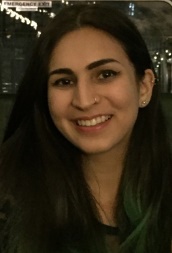Almost six decades after the launch of peak space body NASA, South Australia has taken a stride in establishing the nation’s first ever space centre.
The South Australian Space Industry Centre (SASIC) was announced this month, ahead of the 68th annual International Astronautical Congress being hosted in Adelaide.
SASIC will be a state-based engineering hub to drive space industry innovation and grow the state’s economy, conduct research and entrepreneurial development, and create future high-tech jobs, with an aerospace specialist already on staff.
ISS Flight Operations Engineer Andrea Boyd, who has been a long-time advocate of the Australian space industry, said the South Australian government is ready to hit the ground running with SASIC.
“I am very pleased to see the South Australian government take such an amazing initiative,” she said.
South Australia a champion for space
The state government has been committed to expanding Australia’s space industry for many years, having created an expanded portfolio of Defence and Space Industries and signing a five-year agreement with the Australian Capital Territory to establish a national agency, which the Northern Territory recently joined.
South Australian Premier Jay Weatherill said South Australia has always been a national leader in the space industry, having launched Australia’s first space satellite.
“SASIC will deliver opportunities for manufacturers to transition to a high growth sector, enable start-ups to flourish, and create jobs of the future,” he said.
As Australia is the only developed country without a federal agency, SASIC faces a ‘pretty big uphill battle’ if it wants to increase the national space revenue and form international partnerships, according to Boyd.
The Adelaide-born engineer said the formation of a federal agency will allow SASIC to have greater manufacturing and industrial possibilities.
“The problem is convincing overseas countries that we are serious after not being serious for so long, and aren’t going to crumble with the next government change.
“People need long-term government proof, and a federal agency will establish that.
Boyd said this initiative of South Australia is in anticipation of federal space agency, which will also allow for more ground level work in Australia.
“Research, building niche products for exports and use in Australia and small satellite production can be very easily started.
“It’s pretty simple to do. We’re not talking billions of dollars -- they cost about $100,000 and take three months to build,” she said.
Minister for Defence and Space Industries, Martin Hamilton-Smith said the kind of partnerships Australians need to get into space also require a national space agency.
“The space economy is one of five key areas paramount in transitioning our local economy.
“You are not a credible player in this industry if you don’t have a have a space agency and a well-coordinated plan,” he said.
Boyd hopes that the IAC conference will see the announcement of a federal agency.
“When you have an Australian space agency you can have access to data for cheaper at about $50 million instead of $4 billion per year and create more opportunities for investment,” she said.
Currently, Australia heavily relies on countries such as the US to access satellite data.
Along with more than doubling the revenue of Australia’s space industry over eight years, having a national space agency would create more than 11,500 full-time jobs.
And the IAC conference serves as the prime opportunity to announce it.
It is the biggest global event in the industry with over 3500 delegates from every space organisation, including SpaceX founder Elon Musk, and expected to bring in around $18 million in state revenue.
Having it in Australia involved an extensive application process against top space industry countries such as the US and Germany, and four years of organisation and planning.
Astronauts aren’t all the rage
According to both Boyd and Weatherill, the space industry primarily focusing on astronauts and rockets is a massive misconception.
“The space industry is 90% about satellites.
“We use [data] for remote sensing, tracking weather, GPS systems, agriculture, farming, boarder control, flood and bushfire monitoring, remote communications, and mining.
“Every banking and ATM transaction is done from precision timing from satellite,” she said.
This statement was echoed by Weatherill.
“[The industry] has become part of our everyday lives, from our daily weather forecasts to using our mobile phones,” he said.
Despite the uncertain future of a national space agency, Boyd said Adelaide is the ‘best city’ for the establishment of SASIC location and cost wise, and said she is ‘very pleased’.
“It’s excellent for South Australia, and Adelaide is going to be the federal hub of the national space industry,” she said.
The IAC will be held at the Adelaide Convention Centre from 25-29 September. Registration and other details can be found here.




.jpg)





